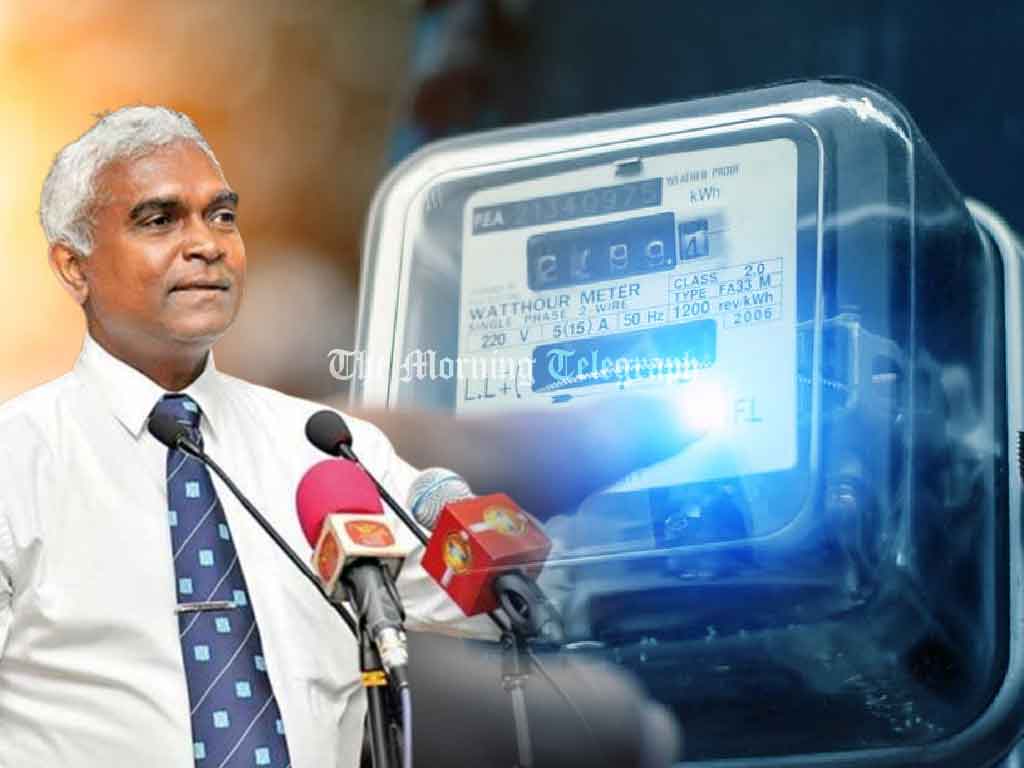
The proposed electricity tariff reductions announced by the Public Utilities Commission of Sri Lanka (PUCSL) will only be implemented after receiving formal approval from the Finance Ministry, according to CEB Chairman Dr. Tilak Siyambalapitiya. He emphasized that the PUCSL operates under the supervision of the Finance Ministry, and any tariff reductions, including the announced 20% cut, must align with the Ministry’s directives. Dr. Siyambalapitiya also highlighted that the Electricity Act mandates tariffs be structured to reflect actual costs, ensuring that both the CEB and PUCSL function within the parameters set by the Ministry.
The PUCSL had announced on January 17, 2025, that electricity tariffs for all categories would be reduced by 20%, effective immediately. This decision was made after the CEB submitted a proposal to maintain existing tariffs for the first half of 2025. Following a review of this proposal, public consultations, and a counterproposal by the PUCSL, the Commission determined that a reduction was feasible and necessary. The tariff cuts were designed to offer relief across various user categories, with reductions ranging from 11% to 31%.
For households, significant reductions are expected. Those consuming 0-30 units of electricity per month will see their monthly bill drop from Rs. 100 to Rs. 75, with the per-unit cost reduced from Rs. 6 to Rs. 4. Similarly, households using 31-60 units will experience a decrease in their monthly bill from Rs. 250 to Rs. 200, with the per-unit cost falling from Rs. 9 to Rs. 4. Households consuming higher amounts, such as 61-90 units, 91-180 units, and above 180 units, will benefit from reductions of 19%, 18%, and 19%, respectively. Non-domestic categories, including government institutions, industries, hotels, and religious or charitable institutions, will also enjoy tariff reductions ranging from 11% to 31%.
PUCSL Corporate Communications Director Jayanath Herath detailed the new tariff structure during a media briefing. For example, the general-purpose category will see a 12% reduction, while government institutions will receive an 11% cut. Hotels, a vital part of the economy, will benefit from a substantial 31% reduction, and industries will see a 30% cut. Even street lamps, a significant cost for municipal councils, will benefit from an 11% reduction. The goal of these adjustments is to provide financial relief to consumers while aligning with national economic strategies.
Dr. Siyambalapitiya further stated that Leco Electricity Private Limited has proposed a prepaid tariff system to offer additional flexibility to consumers. This system, expected to launch in April, will allow users to prepay for electricity at rates of Rs. 14 per unit for up to 90 units and Rs. 52 per unit for usage exceeding 90 units. This initiative aims to provide a transparent and efficient payment method for electricity consumption.
The Energy Ministry has reiterated that these tariff reductions are contingent upon approval from the Finance Ministry, as per the established legal framework. While the PUCSL has completed its process and recommended the new tariffs, the Finance Ministry’s endorsement remains the final step for implementation. This collaborative approach between the PUCSL, CEB, and Finance Ministry underscores the importance of balancing consumer relief with the sustainability of the electricity sector. The proposed changes represent a significant move towards reducing the financial burden on consumers while ensuring the energy sector’s compliance with regulatory and economic requirements.




